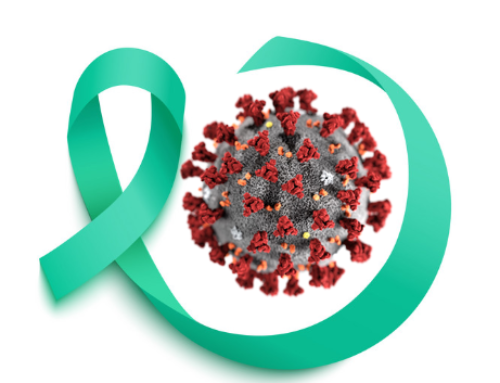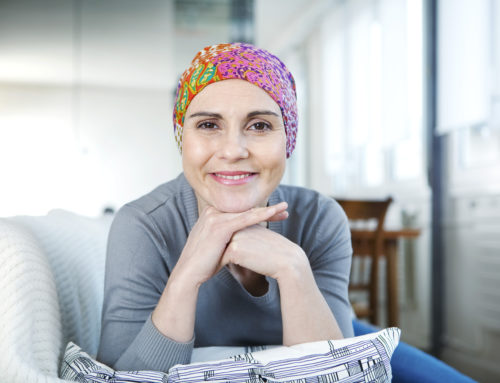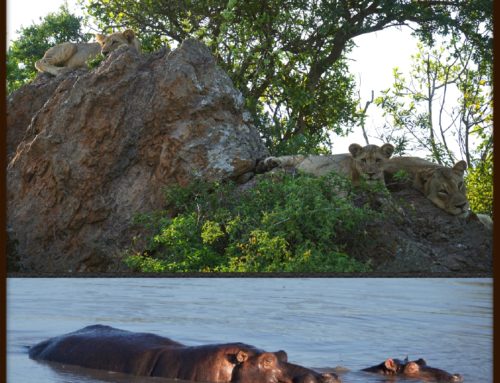My Road to Advocacy and the Inspiring Women I’ve Met along the Way
I ran a nonprofit for twenty years that helped neighborhood residents start businesses in their own community. As a community based urban planner, I was taught that true change in our society comes from the marginalized. I was a student of “Pedagogy of the Oppressed” and “The Truly Disadvantaged” and I truly believed that U.S. public policy was shaped by its misunderstanding of the cultural norms of poor people. I worked in underserved communities that had been neglected for decades. I wrote grants to rehab old storefronts, business plans to help residents secure business loans and access to capital for new construction and local policy on economic development initiatives to help change the local economy in underserved communities. As an adjunct professor, I taught urban sociology in an effort to educate students on the myths of the urban poor and to send a new generation of thinkers into society to create change. I thought all that was my life’s mission, until I was diagnosed with ovarian cancer.
My experience with treatment and recovery was traumatic. I was emotionally unstable and did not receive the mental support I needed to deal with my diagnosis. I wasn’t given any information about the rare form of Granulosa Cell Tumor that I was diagnosed with and information on my subtype was scarce on the internet six years ago. I was convinced I got cancer because of my stressful job. My altruistic need to serve others caused me to neglect my own health care and I wanted nothing to do with service anymore. It was time for me to focus on myself! I completed treatment and went directly into therapy. It was there that my therapist suggested that I reach out to support groups. Reluctantly, I connected with Inspire and through it, a Facebook group with women diagnosed with GCT. After devouring all the posts for knowledge on our rare cancer, I got up the courage to create a post. I asked, “what are we doing to bring attention to OUR ovarian cancer – are we just here to commiserate?” I received a variety of responses from that post, mostly people expressing gratitude for the group, but one person stood up to me. Terri Nickens Gerace!! She responded directly but kindly with a link to OCRA’s Advocate Leaders program. In other words, “put up or shut up!” I read the requirements of the program and immediately said NOPE! I wasn’t emotionally ready – it seemed too much like what I used to do for a living – I was nervous that it would stress me out and the cancer would come back. I decided to shut up and that resulted in stalking the group page for another two years.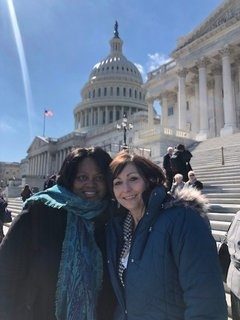
Looking back, I thought I was just dipping a toe into cancer advocacy. I got a few friends together to run a 5k, but that was going to be it. This was something I could handle because I was a runner. Until I mentioned to the local organization that I thought I wanted to be involved with making more African American women aware of ovarian cancer. I was told “we don’t see a need for that right now because THE DATA DOESN’T BEAR THAT OUT.” I stood there shocked! I had asked all of my friends and family to donate to an organization that only saw value in my life from a statistical standpoint. I went to vent in our Facebook group when I saw the post from Terri. The link to the OCRA Advocate Leaders Program again. This time I applied and was accepted. I watched as Terri advocated for GCT survivors, first requesting breakout sessions on rare ovarian cancer at our national conference to securing a full day on Granulosa Cell Tumor two years in a row before the start of our national conference!
(NOTE: Terri passed away in January. She was a champion for Granulosa Cell Tumor ovarian cancer and I was proud to be an advocate with her. I will continue to work to keep GCT and ovarian cancer subtypes at the forefront of research in her honor.)
I started meeting other rare ovarian cancer survivors at our GCT sessions at national conferences. I was attending Advocacy Day on Capitol Hill. I was supporting calls to action on behalf of ovarian cancer.
Then I met Annie. (@Stigetta)
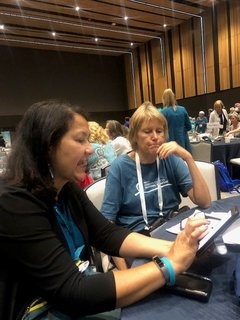
Annie Ellis, a rare ovarian cancer advocate, was canvassing a session at our annual conference to find out if any women wanted to know more about research advocacy for subtypes of ovarian cancer. Annie sets the example for the type of research advocate I want to become. She provided us with online training tools and I was extremely attracted to this form of advocacy. Annie was instrumental in getting me involved with the AACR Scientist Survivor Program (SSP) and in providing me with information about the DoD Ovarian Cancer Research Program Peer Review. Her mentorship throughout the entire DoD/CDMRP application and interview process was extremely beneficial to my becoming a reviewer. After selection as a peer reviewer, Fiorenza Ianzini was the scientific review officer assigned to our team. I could not have asked for a better person to help me navigate through the research review process. Working with Fiorenza really gave me a lot of confidence in my ability to interpret research proposals and to create initiatives that could further assist survivors in understanding cancer research. (fiorenza.ianzini@gmail.com)
AACR (American Association for Cancer Research) has been instrumental in cultivating my research advocacy experience. My advocate mentor during the Scientist Survivor was Ginny Mason. (@IBCResearch)
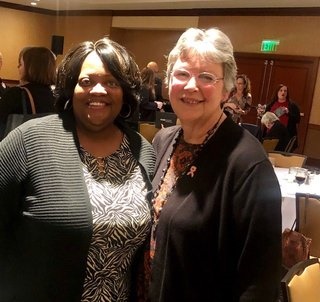
I bonded with this fellow executive director and she continues to impact all aspects of my advocacy work with her professional and personal guidance. At AACR I was asked to participate in a mock presentation at Morehouse University on minority participation in clinical trials. That experience has afforded me several speaking engagements and has helped to shape a conference I’ve organized with the FDA’s Oncology Center of Excellence this month in Chicago. I met Wenora Johnson and Candace Henley participating in SSP and they showed me how dynamic African American women are in cancer advocacy and have subsequently introduced me to several advocate opportunities. (@Winni195/@colon_survivor)
 Candace introduced me to the staff at the University of Illinois Cancer Center where I now hold the position of Project Coordinator for the Center’s patient advocacy activities. Wenora, (pictured to the left of me) is singlehandedly responsible of every scholarship opportunity I have received as an advocate and also encouraged me to apply to the National Coalition for Cancer Survivorship’s Elevate Ambassador Program where I have had my advocacy projects supported by the outstanding leadership of Shelley Fuld Nasso and Elena Jeannotte. The Elevate Ambassador program introduced me to Hillary Stiles, Ph.D (below) who I was partnered with because our work on bidirectional relationships between scientists and survivors was very similar.
Candace introduced me to the staff at the University of Illinois Cancer Center where I now hold the position of Project Coordinator for the Center’s patient advocacy activities. Wenora, (pictured to the left of me) is singlehandedly responsible of every scholarship opportunity I have received as an advocate and also encouraged me to apply to the National Coalition for Cancer Survivorship’s Elevate Ambassador Program where I have had my advocacy projects supported by the outstanding leadership of Shelley Fuld Nasso and Elena Jeannotte. The Elevate Ambassador program introduced me to Hillary Stiles, Ph.D (below) who I was partnered with because our work on bidirectional relationships between scientists and survivors was very similar.
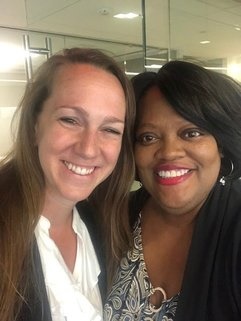
(@CancerAdvocacy/@cancer_TAP)
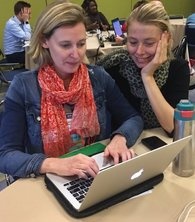
She has established a program called Cancer Advocacy Trainee Program (CTAP) that provides resources to anyone interested in bringing young researchers and cancer patients together in an effort to learn more about each other’s unique contribution to cancer research. Hillary’s good friend Julia Maues and my AACR/SSP cohort colleague, Christine Hodgdon created a research advocacy model called GRASP (Guiding Researchers and Survivors to Scientific Partnerships), which educates breast cancer survivors at scientific posters sessions and helps them navigate the science with the help of experienced advocates and cancer researchers. I was fortunate to be asked to assist Julia and Christine in their inaugural initiative at the 2019 Breast Cancer Symposium in San Antonio as an advocate mentor.
It’s an exciting time for advocates as we navigate initiatives that bring scientists and survivors together. (@GRASPtweets)
Relationships are also important between survivors and their physicians. Another important female advocate relationship has been with Susan Leighton. Susan is a well known advocate for ovarian cancer. She is the national program director for OCRA’s (@ocrahope) Survivors Teaching Students and has spearheaded the efforts in her state of Alabama in creating a commission to study ovarian cancer. She is instrumental in shaping my policy and programmatic efforts in the state of Illinois and I have adapted her model with survivors to advise scientists at a gynecological summit this month. Equally important, Susan recommended me to Dr. Dizon as an addition to this incredible group of women who contribute to this monthly blog for DoD!
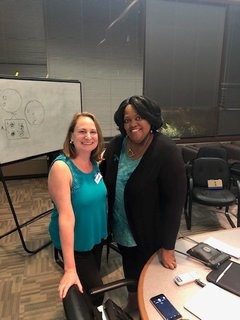
At the University of Illinois Cancer Center, I get the wonderful opportunity to work with some dynamic healthcare professionals. Dr. Joanna Burdette, a scientist who has respected me as a patient advocate and has guided my advocacy work on ovarian cancer. She understands the need for a bidirectional relationship between researchers and cancer survivors. My understanding of ovarian cancer is broader because of the ease in which I can call her about questions that I have. This relationship is invaluable to me. (@JBurdetteLab)
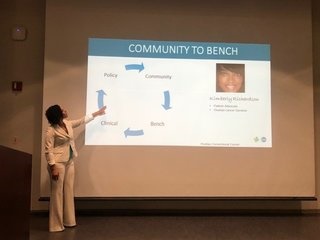
One proud moment last year was when epidemiologist, Dr. Katherine Tossas-Milligan chose me as an example of how patients can inform research designs. ktossa2@uic.edu
Lastly, I would be remiss if I didn’t mention the one advocate who tied cancer advocacy to the work I used to do for a living before my cancer diagnosis. I was attending the Disparities meeting of AACR and although it made my heart leap to see so many African American scientists, I was discouraged that there weren’t any young scientists at the poster sessions that were interested in ovarian cancer.
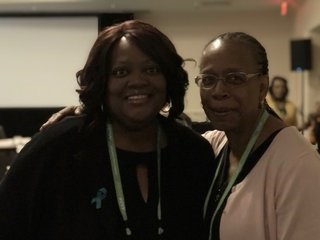
Mary Scroggins was a part of an advocacy panel that afternoon and when she introduced herself as a 20+ year ovarian cancer survivor, I literally had to hold back tears. (nneka@pinkiehugs.com)
Her panel focused on the theory of asset based community development and the role it played in finding survivors to participate in an advocacy program. I was trained in graduate school by that theory and implemented its strategies in a multi funded grant in the city of Chicago that has had a major impact on housing and economic development in some of the city’s poorest neighborhoods. In a serendipitous way, my past professional life now has meaning in my new normal as a cancer survivor. Now I am using my skill set as a patient advocate to shed light on the underserved in cancer research, those with rare ovarian cancer and African Americans that are diagnosed with cancer.
Cancer made me physically and emotionally weak. Advocacy gave me back my strength and introduced me to some equally strong women working in the cancer space. I am grateful to each and every one of them and I wanted to take this time to say thank you for helping me reconnect my past professional experience to new patient advocate opportunities. I encourage you to reach out to these wonderful women and to form solid relationships with other women advocates as well.
Kimberly Richardson
@KDRichardson924
Globe-athon is proud to partner with Smart Patients, an online community where patients learn from each other about their cancer journeys. On Smart Patients, you can discuss issues raised in this blog post and beyond. Join here: https://www.



